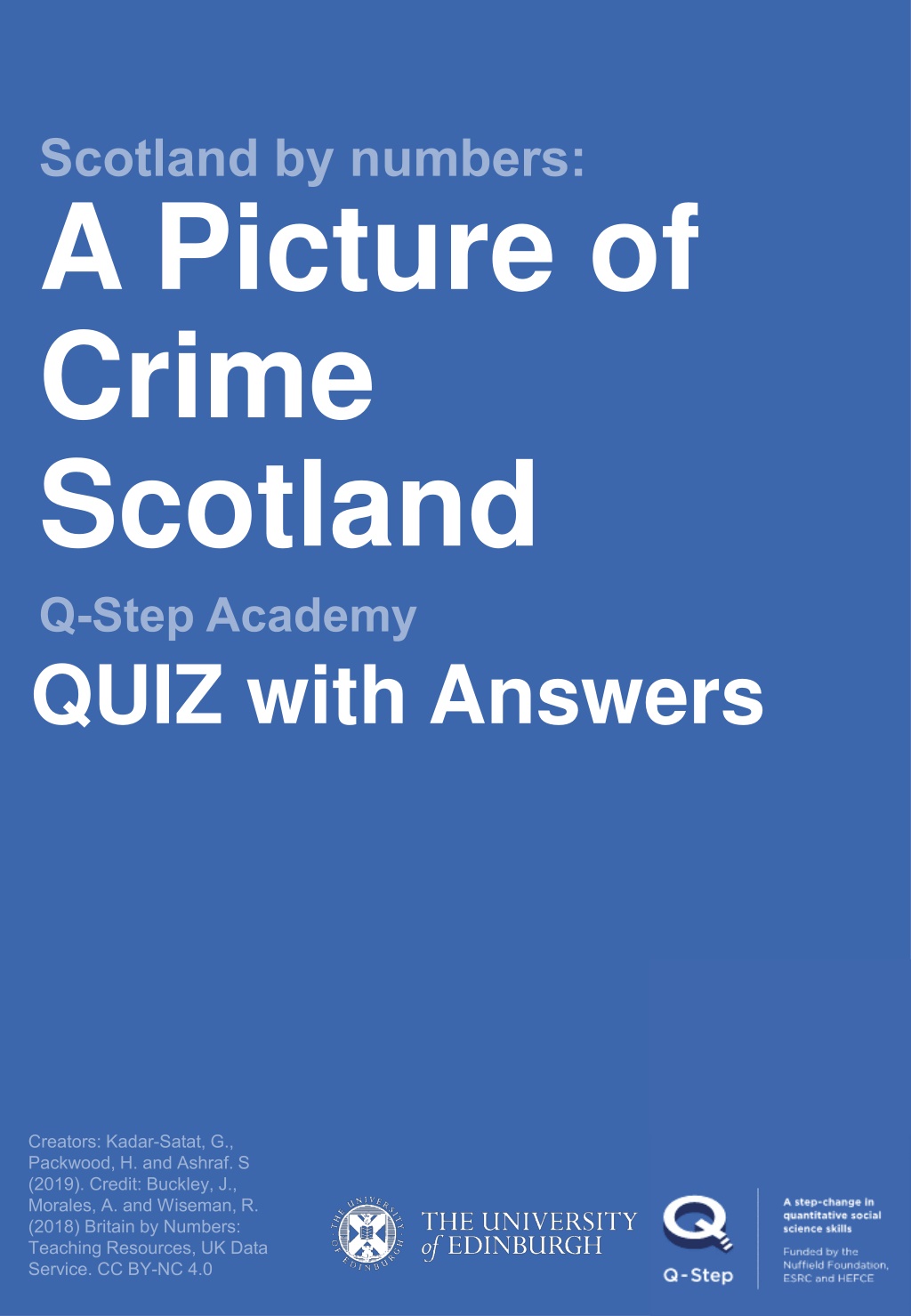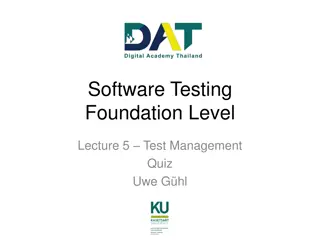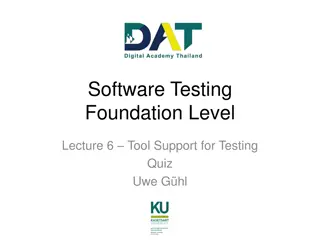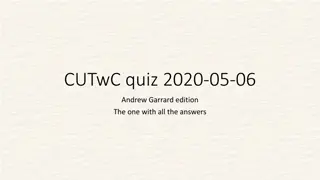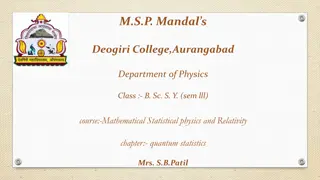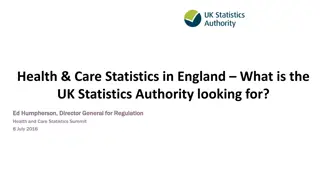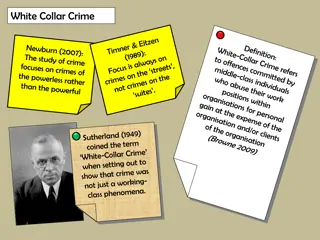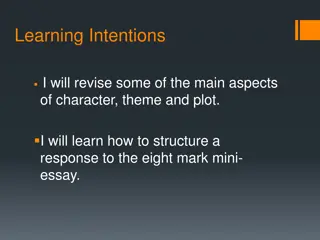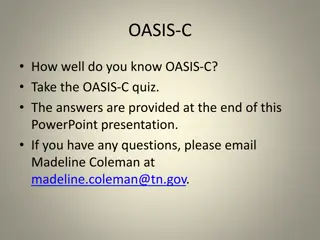Crime in Scotland Quiz: Test Your Knowledge about Crime Statistics
Explore a engaging quiz featuring questions related to crime in Scotland, covering topics such as surveys, crime rates, property crime, violent crime, police views, public perceptions, and more. From the Edinburgh Study of Youth Transitions & Crime to data on adults' experiences and perceptions, this quiz provides insights into various aspects of crime in Scotland. Test your knowledge and learn more about the statistics surrounding crime in this captivating quiz.
Download Presentation

Please find below an Image/Link to download the presentation.
The content on the website is provided AS IS for your information and personal use only. It may not be sold, licensed, or shared on other websites without obtaining consent from the author. Download presentation by click this link. If you encounter any issues during the download, it is possible that the publisher has removed the file from their server.
E N D
Presentation Transcript
A Picture of Crime Scotland QUIZ with Answers
A Picture of Crime Scotland Quiz! Name:____________________________________________________________ Data sources on crime in Scotland 1. The Edinburgh Study of Youth Transitions & Crime is a longitudinal cohort study. Data for this study is collected (a) Repeatedly, from the same individuals each time (b) Repeatedly, from different individuals each time 2. Which of these statements about the Scottish Crime and Justice Survey (SCJS) is FALSE? (a) It collects data on adults experience of crime (b) It collects data on adults perceptions of crime and safety (c) It collects data every 10 years Change in crime rates 3. What happened to the general level of crime in Scotland between 2008 & 2018? (a) An increase in general levels of crime (b) A decline in general levels of crime (c) No change in general levels of crime Experience of crime 4. The percentage of adults in Scotland who didn t experience any crime is: (a) 87.5% (b) 77.5% (c) 67.5% (d) 57.5% 5. The most common property crime reported in the 2017/18 SCJS was: (a) Household theft (b) Housebreaking (c) Motor theft (d) Vandalism 6. Which age group is least likely to experience violent crime? (a) 16-24 year-olds (b) 25-44 year-olds (c) 45-59 year-olds (d) People aged 60+ 7. The percentage of 17-year-olds in Edinburgh saying they had ever carried some kind of weapon for self protection is: (a) 25% (b)18% (c) 9% (d) 2% Young people and crime
A Picture of Crime Scotland Quiz! Young people and crime 8. The figure below shows the % of knife carriers and non-knife carriers who were involved in different types of anti-social behaviours when they were 16. What should be the label of the dark blue bars? (a) Non-knife carriers (b) Knife carriers (c) Type of knife Views of the police 9. What percentage of adults are confident in the ability of the police to solve crimes? (a) 95% in urban areas and 91% in rural areas (b) 95% in rural areas and 91% in urban areas (c) 65% in urban areas and 61% in rural areas (d) 65% in rural areas and 61% in urban areas 10. Are the majority of adults in Scotland confident or not confident in the fairness of the police? (a) Confident (b) Not-confident 11. Which type pf crime adults are most worried about being victims of? (a) Fraud (b) Robbery (c) Minor assault (d) Serious assault Fear of Crime 12. Which of these groups is more likely to feel unsafe walking alone in their local area after dark? (a) Men (b) Women (c) Equally men and women
About the creators of this resource: What is the Q Step Academy? The Q Step Academy is a partnership between the Edinburgh Q Step Centre and schools in Edinburgh and the city region. This partnership will provide free training and resources on statistical literacy for staff and pupils in the Social Sciences. Dr Gitit Kadar-Satat Outreach Fellow, University of Edinburgh Q-Step Centre. Dr Helen Packwood Outreach Fellow, University of Edinburgh Q- Step Centre. What will the Academy do? The Q-Step Academy aims to raise the profile of social statistics and data literacy within schools. It will work in collaboration with teachers, delivering masterclass sessions to pupils and creating resources which link to the curriculum. Mr Sohaib Ashraf is studying MA Politics with Quantitative Methods. How can your school get involved? We are looking to develop links with schools in the future, if you would like more information, please get in touch by emailing us: qstepacademy@ed.ac.uk or visit: www.q-step.ed.ac.uk
